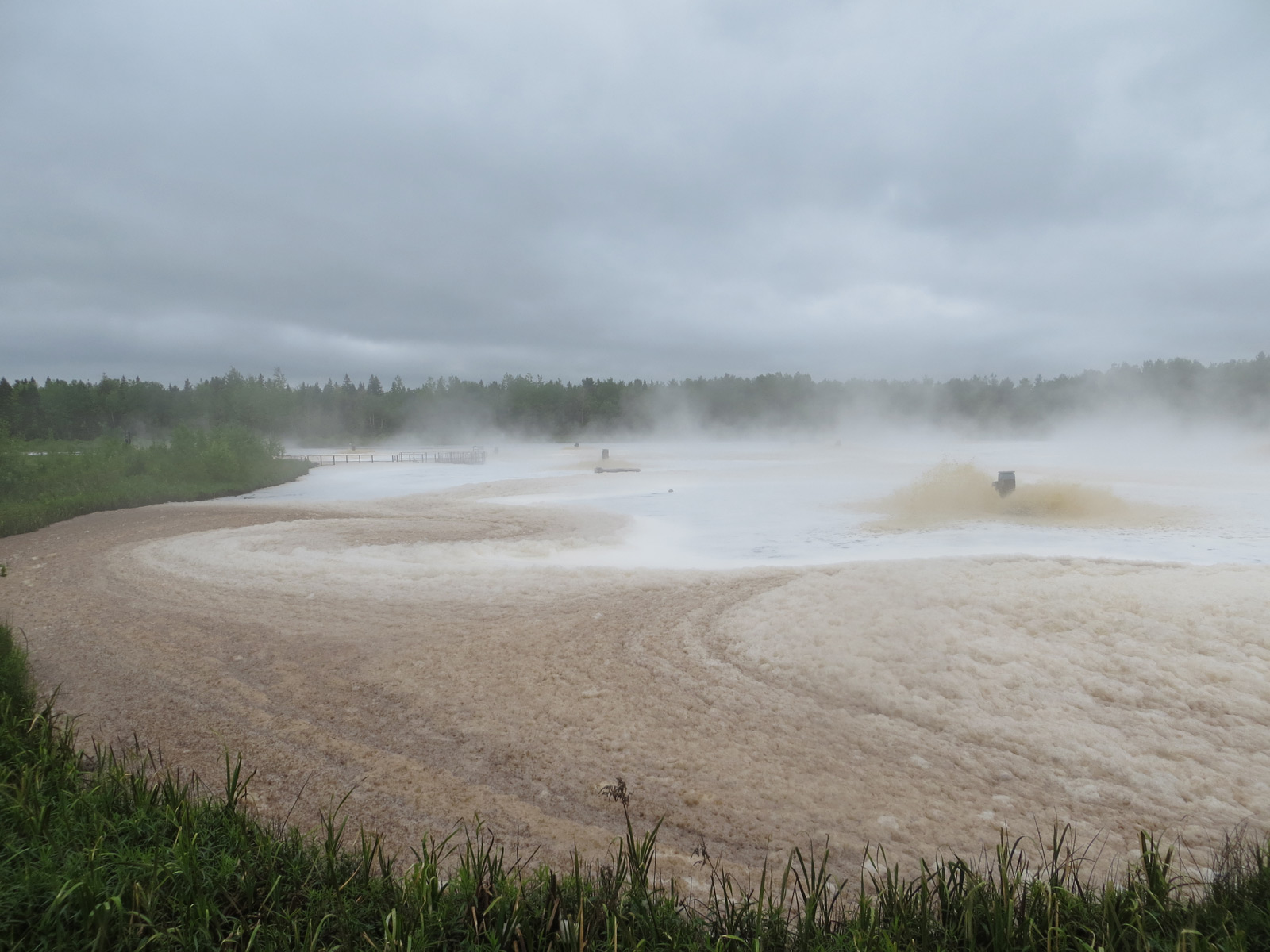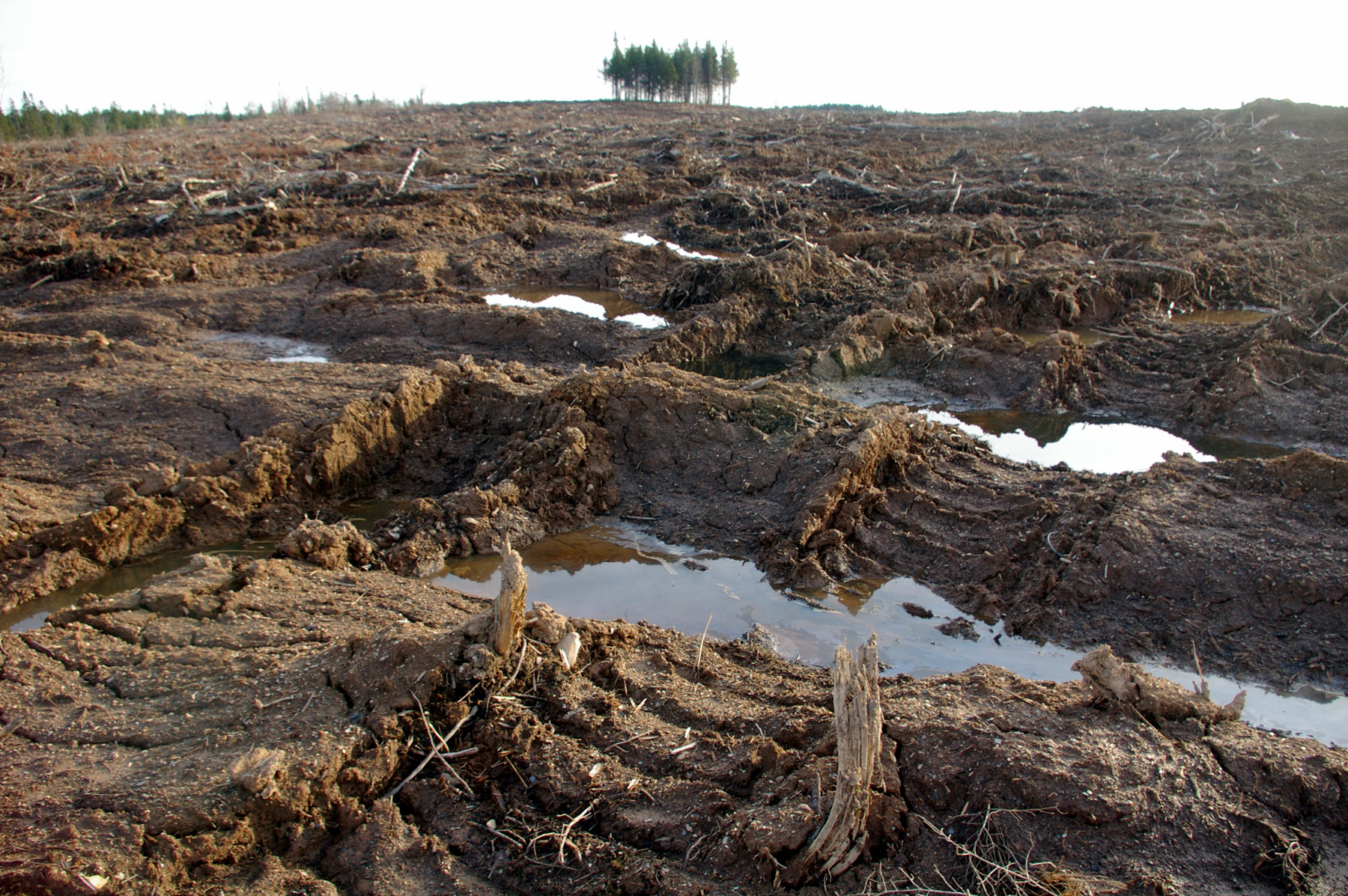#84 Fall 2017 Features Editions , Nonfiction ,
Save the Humans

Reading Joan Baxter’s The Mill: Fifty Years of Pulp and Protest, the story of the infamous Abercrombie pulp mill in Pictou County, is shocking and upsetting. I can’t say what hits hardest. Perhaps it’s the desperate giveaway of Nova Scotia’s forests to foreign corporations with decades-long leases at bargain bin prices. Or it could be the obviously high-risk, careless decision to pump a healthy tidal estuary full of millions of litres of chemical effluent in hopes that nature would somehow clean it up. Or maybe it’s the deception and strong arming involved in getting the Pictou Landing First Nation to allow just that to happen in their own backyard, almost instantly decimating the waters its residents relied on for food and recreation.

Any one of those aspects of this story is jaw dropping and agonizing to read about, but the straw that breaks the camel’s back is simply this: It’s been going on for over 50 years and it’s still going on today.
There’s little in Baxter’s friendly, highly readable account of the Pictou County pulp mill that is not still happening today, be it short-sighted forest management, lack of mill oversight, pricey government payouts to corporations or broken promises to clean up and restore Boat Harbour, the Pictou Landing First Nation’s beleaguered tidal estuary.
Through Baxter we hear from Pictou Landing Elders and activists and a multi-generational group of other Pictou community residents and activists. Many acknowledge that the mill has brought badly needed jobs to Pictou. But most question the price that was paid for those jobs.
The Mill is a valuable document of Nova Scotia history that connects directly to our present day. As I read it, I couldn’t help thinking that it should make its way into high school curricula. As Elizabeth May writes in her foreword:
“More people need to understand the political deals that brought this mill into being and protect it still. Can nothing change the political culture of Nova Scotia to protect its citizens?”
Of course the political culture of investment in and under-regulation of resource-extractive industries is not Nova Scotia’s exclusive domain. It’s a pan-Canadian political culture, one that in Alberta has seen public institutions penetrated by the oil industry to such an extent that they have formed what Kevin Taft describes as a “deep state.”
 As a former Liberal MLA from Alberta, Taft has an insider perspective on the workings of political culture, which gives the stories in Oil’s Deep State: How the petroleum industry undermines democracy and stops action on global warming–in Alberta, and in Ottawa a sort of fly-on-the-wall quality. In Taft’s experience as a politician he’s been privy to conversations that might raise the hair on the back of your neck. (One particular threat from a “senior energy industry official” in 2007 stands out. Taft recalls being told, “We can do things you’ll never know. You won’t even know what hit you.”)
As a former Liberal MLA from Alberta, Taft has an insider perspective on the workings of political culture, which gives the stories in Oil’s Deep State: How the petroleum industry undermines democracy and stops action on global warming–in Alberta, and in Ottawa a sort of fly-on-the-wall quality. In Taft’s experience as a politician he’s been privy to conversations that might raise the hair on the back of your neck. (One particular threat from a “senior energy industry official” in 2007 stands out. Taft recalls being told, “We can do things you’ll never know. You won’t even know what hit you.”)
In Oil’s Deep State, Taft tells the story of the Alberta government’s journey from hard bargainers walking away from negotiations with Syncrude in 1973 over the first oil sands project (and later signing a deal with a 50 percent royalty on net profits and a 5 percent stake in the project) to the 1990s regime, which enacted policies written by oil-industry groups, offering open season on the oil sands and allowing firms to repay all their capital investments before paying just 25 percent in royalties. It’s a stunning turnaround of political philosophy and it all happened inside the same party, the Alberta Progressive Conservatives.
What accounts for such a dramatic reversal is the basis of Taft’s deep-state theory. He describes how corporations like Suncor, Imperial Oil and Enbridge threw money into political campaigns and created well-funded pro-industry groups like the Energy Policy Institute of Canada and the Canada School of Energy and Environment (housed within the University of Alberta), through which they were able to dominate the discussion around how to manage Alberta’s oil sands, and the province’s role in contributing to climate change.
Oil’s Deep State and The Mill tell similar stories–the hobbling of our democratic institutions by corporations whose profit margins are directly linked to their ability to control our natural resources. They are cautionary tales of what happens when the fox ends up running the henhouse.
Read ‘em and weep.
Written By:



